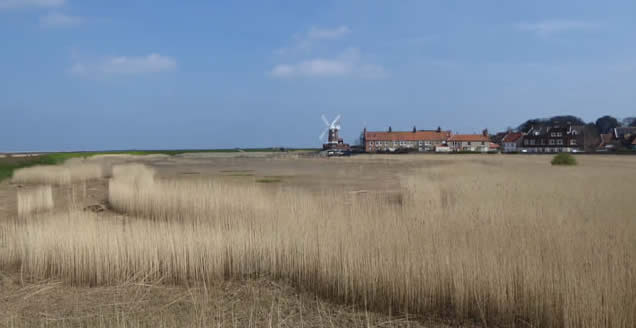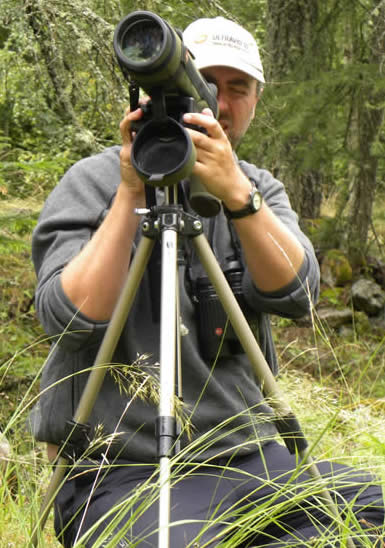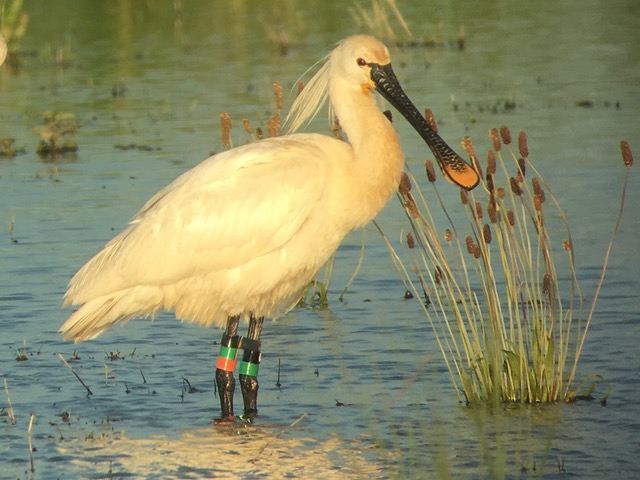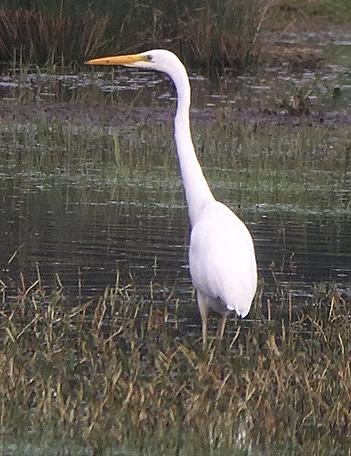North Norfolk break
21 – 25 February 2022 *
For October 2022's break click here:
North Norfolk, autumn
Four days in the field on and near the North Norfolk Coast
* Suggested arrangement is to arrive on the Monday (21 Feb) with four days in the field 22-25 February. Participants might depart either late Friday (25 Feb) or Saturday morning (26 Feb). There is scope to do more or fewer days.
This web page is outlines Honeyguide's 'north Norfolk break', which has previously run in spring and autumn. The plan is that participants book the hotel themselves, and Honeyguide's Rob Lucking will be your nature guide for the stay. This break will be mainly focussed on birdwatching, given the area, time of year and Rob's knowledge.
Winter birdwatching in Norfolk can offer some of the UK's best birdwatching, and mix of resident birds and winter visitors, including flocks of waders and pink-footed geese. This is all set in a striking coastal landscape.
We will visit a mix of sites, from well known nature reserves such as Cley Marsh and Holkham NNR to lesser-known sites, off the beaten track. The itinerary isn’t set in stone and we’ll retain a degree of flexibility to suit the prevailing conditions and respond to any good wildlife that turns up.
Itinerary
Previous groups have had a visit to RSPB Snettisham; this time the tides are not suitable for the high-tide spectacle here.
Day 1: Holkham National Nature Reserve
Holkham NNR is England’s largest National Nature Reserve and comprises a wide range of habitats including an impressive sandy beach, pine and broad-leaved woodland and coastal grazing marsh. We will start at Lady Anne’s Drive (car parking charges apply) and explore Holkham Bay for wintering snow buntings & shorelarks, divers & sea duck. We will then move to the grazing marshes for wintering wildfowl, possibly three species of egret and raptors. We will end the day at Holkham Park for roosting red kites.
Honeyguiders at Holkham beach, October 2021.
Day 2: Wells/Stiffkey/Cley
We will start at North Point pools, a newly created wetland just to the west of the seaside town of Wells-next-the-Sea which usually hold a good selection of wildfowl. Later we move on to Norfolk Wildlife Trust’s world-famous Cley Marshes nature reserve for lunch and a walk. If time permits, we will finish the day at Stiffkey where we will scan the salt marsh for roosting hen harriers, merlin and peregrine.

Cley mill.
Day 3: to be decided, or we could split the group.
Option A: more places in north Norfolk, e.g. Burnham Norton, Wells Harbour, Kelling Heath and Water Meadows, a boat trip from Morston to Blakeney Point (if the weather is suitable).
Option B: Broads Day, with Chris Durdin
Potter Heigham Marshes are a new habitat creation project, a mix of grazing marsh, reedbeds and pools, to offset losses in Suffolk due to coastal change. Waterfowl, marsh harriers, bearded tit with luck, Cetti's warblers will be singing if it's a bright day. Then NWT Hickling, a walk around the reedbed nature reserve, with a chance of a bittern, ending up at the raptor viewpoint at Stubb Mill looking towards Horsey, where harriers come to roost and there is a very good chance of seeing cranes (news story here about 64 cranes in November 2021).

Cranes from Stubb Mill (Tony Brooks)
Day 4: RSPB Titchwell Marsh
Our final day will be spent at the RSPB’s Titchwell Marsh nature reserve. The work on the fresh marsh and reedbeds have been completed (details here) and there will be plenty of birds for us to look at. The freshwater marsh can hold impressive numbers of wildfowl and waders, plus more waders on the beach. The shallow waters of Brancaster Bay can be good for grebes, divers and sea ducks. We’ll have lunch at the RSPB café and then explore the rest of the reserve. If we’re still going at dusk we will watch marsh harriers (and hen harrier if we are lucky) and little egrets come in to roost.
Hotel
Accommodation will be at the Titchwell Manor Hotel. There are special arrangements for Honeyguiders. For anyone who is interested, please contact the Titchwell Manor Hotel direct on 01485 210221 or info@titchwellmanor.com and mention Honeyguide when booking.
Alternatively Honeyguiders may wish to source self-catering accommodation, for example via Airbnb. Anywhere between Brancaster and Wells-next-the-Sea is reasonably central for the sites we will be visiting. If the group is dispersed, instructions on where we will be meeting at the start of each day will be provided in advance.
Lunches: All sites we will be visiting have visitor centres with cafés for lunch, toilet facilities & shop. Or we'll find a shop for buying packed lunches.
Holiday details & how to book
Days/dates: the dates above are four days in the field, Tuesday to Friday. We expect most people to have either four or five nights at the Titchwell Manor Hotel: to arrive on the Monday and leave some time on Friday or on Saturday morning. If anyone would like to extend their stay, or come onto the Broads area, we can make that possible, with a guide if requested.
Hotel cost: depends on the choice of room. Rates for rooms can be emailed (there are three grades, good, better and best), along with the special arrangements for Honeyguiders.
Price: £100 per day fee for your guide (including guide's expenses and conservation contribution).
Deposit: none to Honeyguide. You will be invoiced after the break.
Booking: no booking form is needed. Just keep us informed!
Local travel: in your car, or in Rob's car if you are comfortable with that, or car sharing by mutual consent. No minibus is being booked.
Maximum number (one guide): 8 plus guide. Local Honeyguiders may join the group on some days.
Conservation project
£40 per person will be donated to Norfolk Wildlife Trust. We plan to earmark this for NWT's appeal (February 2022) to buy Sweet Briar Marshes in Norwich.
Guides
Rob Lucking lives in a small village near Fakenham in North Norfolk and worked for the RSPB for 23 years, latterly as the Area Manager for North Norfolk, Lincolnshire & The Brecks. He has led and co-led wildlife holidays for Honeyguide to Lesvos and Crete and is now a freelance ornithologist, ecologist, horticulturalist and tour guide. Rob is a trustee (Council member) of Norfolk Wildlife Trust. Chris Durdin will also join the group on at least one day. More about Chris, Honeyguide's proprietor, on our Crete page.





